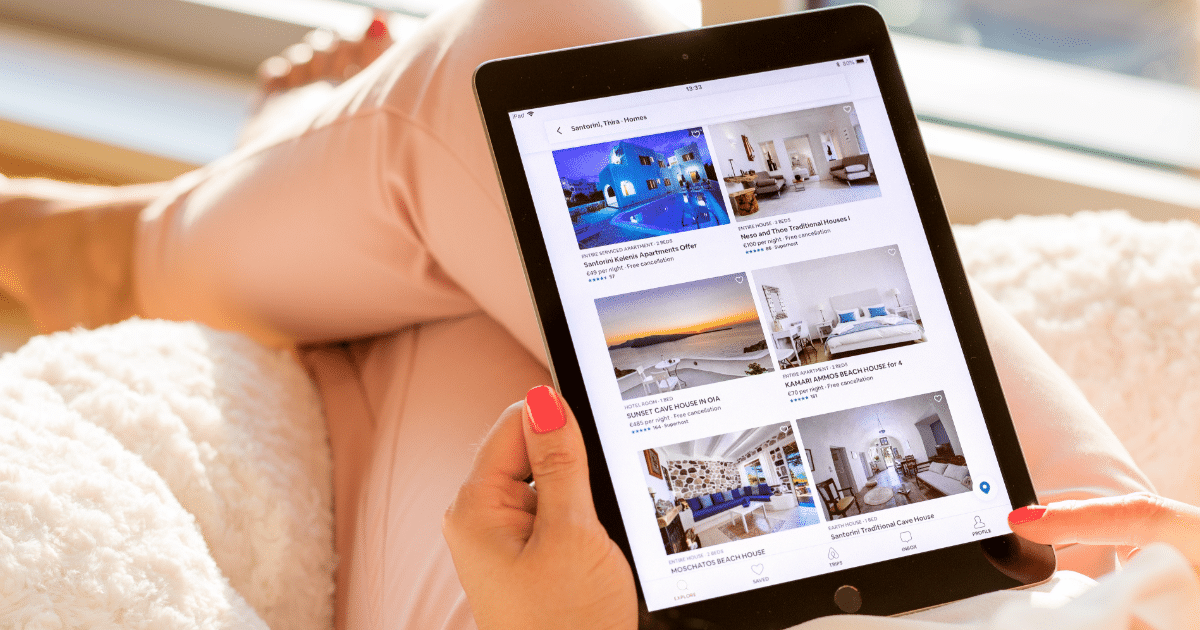The internet has become a great connector; it provides a platform for meetings as well as exchanges and live streaming experiences with others. Webinars are not unheard of—they have become a preferred means to educate sizable audiences regardless of geographic locations. In addition to advocating and sharing information, webinars provide marketers the opportunity to demonstrate products and expertise to a live audience.
What is a Webinar Exactly?
The word is an amalgamation of two words: “web” and “seminar,” which perfectly illustrates using the web as a means of transmitting seminars virtually.
Oftentimes people think that marketing videos and webinars are synonymous, but this could not be further from the truth. Unlike pre-recorded marketing videos, webinars have a live presenter and provide time for dialogue and audience engagement. This leads to more sharing of information and increases a company’s relatability and rapport with participants.
According to CloudIncome.com, 73% of marketers regard webinars as one of the most effective ways to generate and obtain high-quality leads. This is further supported by the fact that webinar-hosting can be streamed through on-demand viewing and various social media channels like YouTube and Facebook.
To illustrate the value of webinars, a multinational technology firm recognized the importance of digital engagement and maximized the use of webinars as supplementary to its existing email, web conferencing, and eLearning strategy. Adobe was interested in knowing more about its clientele and expanding its market past the click-through.
Adobe organized a series of webinars that promoted different types of webinars depending on the level of engagement the potential clients already had with the company. It held multi-type webinars based on the audience segment, from “best practice-themed webinars,” “solution webinars,” ultimately “product webinars,” and “webinar funnel.” Adobe moved potential clients along different webinars until they were sales-ready leads. Those who attended multiple webinars were likely interested and ready for conversion.
How Do They Help?
Why have Adobe and other firms taken such an interest in webinars? During the COVID-19 pandemic, as many companies transitioned to a work for home arrangement, training, conferences, and networking occasions were replaced by virtual meetings. The invitation “let’s do a Zoom webinar!” became frequent, as Zoom became the dominant teleconference brand during this time.
However, what is often overlooked is the sales opportunity you gain in a webinar. Webinar marketing is an ideal platform for connecting with customers and pitching your services and products to an audience. Below are five ways webinars can contribute to boosting your teams’ sales conversions.
5 Ways to Use Webinars to Increase Sales Conversions

1. Efficient Savings
Maximizing the use of webinars can save both time and overhead expenses. Logistics and administrative costs related to hosting seminars can balloon if one considers the cost of the venue, printing collateral, and seminar materials,transportation, audio/visual systems, hosts and facilitators, food allocation, lodging, and resource persons, to name a few. In addition to hosting conferences and seminars, businesses must also invest in attending events, which can exhaust both time and financial resources. Utilizing the internet can result in time savings during the preparation stage.
2. Engaging Buyers
Webinars contribute to converting prospective clients because they capture the client’s attention for a significant period of time. First, there is the initial engagement through an email or digital flyer followed by registration. Then, typically businesses have a captured market during the live session, which typically runs for an hour or more. Webinars are able to provide engaging interactions which, unlike other sales campaigns, offer a tangible experience through participation in chat, pools, or surveys, as well as question and answer segments that can really pique one’s curiosity and answer client concerns, en masse.
Personalization is one technique that makes one webinar more engaging than others. The content and topic of your webinar must be specific and tailored to address your specific customer base. The more granular and detailed the content or training offered, the better. For example: users would be likelier to enroll in a seminar entitled “How To Write Copywriting Titles and Leads that Increase Conversion By At Least 50%,” instead of the more ambiguous “The Kind of Copywriting that Can Boost your Business.”
3. Integration with Marketing Automation
Analytics and big data offer valuable insight to firms and webinars can fit into the information cycle. Webinar analytics are incredibly valuable especially when integrated into an automation platform that can track and monitor interaction of specific customers. Email touch points, website activity, and webinar engagement provide a strong customer profile that allows a firm to tailor its communications approach to make each interaction more intuitive and personalized. With more information and visibility with customers, marketers are better able to optimize their demand generation programs effectively propelling sales pipeline opportunities.
4. Improves Brand Reputation and Credibility
Successfully conducting webinars puts your brand at the forefront of the competition by cementing your authority within your industry. As a point of reference and expert, you are seen as a brand that provides not only products and services but understands customer needs and offers solutions. This type of recognition and brand credibility results in better brand recognition, product loyalty, and ultimately, better sales performance.
5. Demonstration Time
Seeing is believing and this is the case with sales. People do not only want to hear about your product or see flyers and videos, they want to see it with their own two eyes. Hosting a webinar is effective for those who want the change to demonstrate how their product works. Recall what was mentioned above: People want a solution for challenges they encounter. Webinars give you a medium to show off your product and/or service live in action and build up how it works, how effective it is and what it can do for them.
It must be emphasized that the webinar is not the end; your follow up strategy is just as crucial as the preparation and actual implementation of the webinar. What makes webinars a great addition to the sales strategy is that it transforms your prospect from an unaware, merely curious lead to a fully informed potential customer ready for conversion.
The next time your manager repeats that phrase “let’s do a Zoom webinar,” make sure the effort is backed up by a sales objective to maximize the meeting.
Webinars are an asset to lead generation and client conversion because they are a means of offering clients with self-education within the sales cycle. Using webinars for your business is the next stage in this digital age. It is an easy and efficient means to connect with an interested audience. With the right approach and execution, your business can benefit from increased sales, among other benefits.











